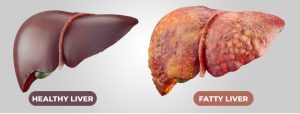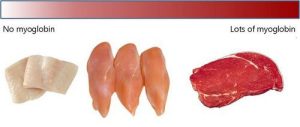By Dr. Charles Moses Lyimo
(Genetics and Biochemistry expert)
“We are evolved to feast and fast for healthy survival”
Nutrition is a complex and expanding field, that various myths and contradictions can be found in the information available. The existing feeding pattern and the current dietary composition led to hormonal modifications and several other nutritional problems. To navigate these complexities effectively, it’s important to understand the evolutionary link between nutrition and human adaptation.
Human nutrition has been shaped by evolution, influencing the way our bodies adapt to various food sources. Our hunter-gatherer ancestors consumed a diverse range of foods including lean meats, fruits, vegetables, nuts, and seeds, to provide varieties of macronutrients, micronutrients, and fiber, essential for both the human body and its microbiome. As a result, the human digestive system evolved to efficiently process a wide variety of unrefined foods, reflecting our omnivorous nature.
The concept of “feast and fast” aligns with this evolutionary history. Early humans often faced unpredictable food availability, leading to periods of feasting when food was plentiful and fasting during scarcity. These cycles shaped how our bodies store and metabolize nutrients. During periods of feasting, when there is an abundance of food, especially high-calorie foods rich in fats and carbohydrates, the body stores excess energy in the form of fat. This stored energy can then be utilized during periods of fasting when food is scarce. This ability to store fat was crucial for survival in environments where food availability fluctuated seasonally or unpredictably.
Fasting triggers several adaptive responses in the body. When food intake is limited, the body shifts from using glucose as the primary fuel to utilizing stored fat through a process known as ketosis. This process, known as ketosis, promotes the breakdown of fat into fatty acids and ketones, which the body can use for energy. Modern studies indicate that intermittent fasting mimics our evolutionary feast-and-fast cycles, promoting weight loss, improving metabolic health, reducing inflammation, and potentially enhancing longevity. Fasting also activates cellular repair mechanisms, reduces insulin levels, and improves insulin sensitivity, which can protect against chronic diseases like diabetes and obesity.
Therefore, over thousands of years, Homo sapiens evolved as adaptable omnivores, shaping our body physiology to thrive on diverse diets. Evolutionary principles offer valuable insights into human nutrition. The physiology of our gastro intestinal truck and the adaptable microflora in the gut made us more efficient in utilize a wide range of food resources. Furthermore, the evolution of the human gut microbiomes demonstrates a dynamic interdependence between genetics, diet, and environment. Over time, our microbiome has adapted to dietary shifts during human evolution, influencing digestion, nutrient metabolism and nutrient absorption.
The symbiotic relationship between humans and gut microbes reflects coevolution, where microbial communities contribute to the host’s nutritional needs. This coevolution highlights the microbiome’s significant roles in shaping human health and nutritional adaptation throughout evolution. Understanding these adaptations is important to recognizing the complex role of the microbiome in human nutrition and its influence on overall well-being. The gut and microbiome, often referred to as the “second brain,” communicate with the brain through the gut-brain axis, influencing mood, cognition, immune function, digestion, and mental health by producing essential neurotransmitters.
 From Paleolithic hunter-gatherers to the Agricultural Revolution’s impact, our nutritional needs have been influenced by environmental and lifestyle changes. The advent of agriculture around 10,000 years ago marked a significant shift in human nutrition. The cultivation of grains and domestication of animals led to changes in dietary patterns and its availability. Since the hunter and gather cave man lifestyle to the modern human with silos, milling machines, and refrigerators, cause a tremendous change of long adapted dietary form. Modern factors like processed foods and individual variations highlight the complexity of meeting optimal nutritional requirements in today’s diverse world.
From Paleolithic hunter-gatherers to the Agricultural Revolution’s impact, our nutritional needs have been influenced by environmental and lifestyle changes. The advent of agriculture around 10,000 years ago marked a significant shift in human nutrition. The cultivation of grains and domestication of animals led to changes in dietary patterns and its availability. Since the hunter and gather cave man lifestyle to the modern human with silos, milling machines, and refrigerators, cause a tremendous change of long adapted dietary form. Modern factors like processed foods and individual variations highlight the complexity of meeting optimal nutritional requirements in today’s diverse world.
Human populations around the world have developed diverse diets based on local climates, available resources, and cultural practices. The advent of cooking and food processing has been a significant evolutionary development. Cooking, for instance, may have played a role in making certain nutrients more bioavailable and in reducing the risk of foodborne illnesses. Genetic variations among populations may also influence how individuals respond to different types of diets.
The best feeding pattern for humans involves consuming balanced, nutrient-dense meals with a focus on whole foods. This includes vegetables, fruits, lean proteins, healthy fats, and whole grains. Incorporating intermittent fasting, or eating in time-restricted windows, can help regulate metabolism and promote cellular repair. Avoiding processed foods and refined sugars while prioritizing variety and portion control supports long-term health. Individual needs may vary, so personalized advice from healthcare professionals is beneficial.
Nutritional requirements vary across individuals based on age, sex, activity level, and health status. The rapid changes in food processing and the availability of processed foods in modern times have introduced novel elements to the human diet. Some argue that certain aspects of the modern diet, such as high levels of refined sugars and processed foods, may contribute to several health issues since are not align well with our evolutionary heritage. With these challenges, several myths have been developed in this field of nutrition.
The belief that eating fat-rich foods easily triggers insulin resistance more than carbohydrate-rich foods is a myth. In reality, excessive intake of refined carbohydrates, particularly sugars and processed starches, leads to frequent insulin spikes, which can cause insulin resistance over time. Healthy fats, when consumed moderately, do not have the same immediate effect on insulin levels. Therefore, the existing myth that all high-fat foods are bad oversimplifies nutrition. While trans and saturated fats from processed foods harm heart health, healthy fats from avocados, nuts, seeds, and fatty fish support hormones, nutrient absorption, and heart health. Instead of avoiding fats entirely, focus on consuming healthy, unprocessed fats as part of a balanced diet.
The myth that vegetable oils are inherently better than seed oils is misleading. Both types of oils vary in health benefits depending on their processing and fatty acid composition. Some vegetable oils, like olive oil, are high in healthy monounsaturated fats, while certain seed oils, such as flaxseed oil, chia seed oil, and fish oils are rich in omega-3 fatty acids. However, many seed and vegetable oils, when heavily refined, contain high levels of omega-6 fatty acids, which can promote inflammation if consumed in excess. Good vegetable and seed cooking oils include olive oil, avocado oil, coconut oil, flaxseed oil, and sesame oil. Animal fats, like those from grass-fed animals, contain beneficial nutrients such as omega-3s and fat-soluble vitamins.
 The myth that eating fatty foods directly leads to weight gain is based on a misunderstanding of how the body processes nutrients. While fats are calorie-dense, weight gain occurs when you consume more calories than your body burns, regardless of whether the calories come from fats, proteins, or carbohydrates. Healthy fats, such as those from avocados, nuts, and olive oil, are vital for brain function, hormone production, and energy storage. Fat-rich foods can help restrict insulin release by slowing down carbohydrate absorption, leading to more stable blood sugar levels. Eating healthy fats can aid in weight loss by promoting satiety, regulating hormones, and boosting metabolism, making it easier to control calorie food intake.
The myth that eating fatty foods directly leads to weight gain is based on a misunderstanding of how the body processes nutrients. While fats are calorie-dense, weight gain occurs when you consume more calories than your body burns, regardless of whether the calories come from fats, proteins, or carbohydrates. Healthy fats, such as those from avocados, nuts, and olive oil, are vital for brain function, hormone production, and energy storage. Fat-rich foods can help restrict insulin release by slowing down carbohydrate absorption, leading to more stable blood sugar levels. Eating healthy fats can aid in weight loss by promoting satiety, regulating hormones, and boosting metabolism, making it easier to control calorie food intake.
The myth that fruit sugar (fructose) is healthier than glucose sugar is misleading. While whole fruits provide essential nutrients and fiber that slow sugar absorption, refined fruit juices contain concentrated fructose without the fiber, similar to glucose based sugars. Both fructose and glucose, when consumed in excess, can lead to blood sugar spikes, insulin resistance, and weight gain. Refined fructose, especially from juices, can overload the liver, leading to fat accumulation and metabolic issues. Excess fructose consumption can lead to non-alcoholic fatty liver disease (NAFLD) development. Whole fruits, not their refined juices, are the healthier choice.

The comparison image showing a healthy liver and a liver affected by non-alcoholic fatty liver disease (NAFLD)

Nowadays, many people prefer to consume refined juices without fiber, which is not recommended for health. These refined juices trigger a stronger insulin response in the duodenum, leading to blood sugar spikes and lacking the fiber necessary for digestive and metabolic benefits. In contrast, fructose in whole fruits is wrapped in fiber, resulting in minimal insulin release. The fiber slows sugar absorption, allowing fructose and fibers to nourish beneficial microbes in the lower gut. Normally, this fiber acts as a prebiotic, delivering fructose and fiber to the lower gut, where it supports beneficial microbial growth that promoting digestion, immunity and gut health.
The other existing myth in nutrition, is how many eggs should be eaten per day or per week. Numerous recommendations are given by experts, advising a restricted number of eggs to control cholesterol. In fact, the main concern with eggs is the amount of bad cholesterol (LDL) they contain, not the number of eggs consumed. To reduce LDL in eggs, poultry can be fed a diet rich in omega-3 fatty acids, such as flaxseed, linseed, algal oil or fish oil. This diet produces eggs with healthier fats, allowing for larger consumption without raising cholesterol levels. Eggs from foraging chickens are generally healthier due to their varied, natural diet of insects, plants, and seeds. Eggs from foraging chickens are typically richer in omega-3 fatty acids, vitamins, and antioxidants, and contain lower levels of unhealthy fats compared to conventionally raised chickens fed on grain based diets.

The myth that white meat is always better than red meat depends largely on the diet of the animals. Red meat from grass-fed animals is healthier, containing lower levels of saturated fats, higher omega-3 fatty acids, and nutrients like iron, zinc, and vitamins B6 and B12. These components can reduce bad cholesterol (LDL) and inflammation. In contrast, red meat from grain-fed animals tends to have more omega-6 fatty acids and saturated fats, leading to health issues. Similarly, white meat from grain-fed poultry may not offer significant health benefits over grass-fed red meat. Therefore, the source and diet of the animals are important considerations. The primary difference between red meat and white meat lies in the type of muscle fibers, the amount of myoglobin, and the way these muscles are used by the animal.

Currently, the myth that eating six meals a day is inherently healthy stems from the idea that frequent eating boosts metabolism. However, research shows that meal frequency doesn’t significantly impact metabolic rate. Instead, frequent eating can lead to overeating, blood sugar imbalances, and digestive strain. Focusing on balanced, nutrient-dense meals is more important than eating frequently.
With this understanding, the best feeding pattern, considering human evolution and nutritional needs, should follow a natural rhythm of periodic feasting and fasting, similar to that of our hunter-gatherer ancestors. This approach allows the body to utilize stored energy, promotes fat burning, and activates cellular repair processes like autophagy. Humans evolved to consume a varied diet rich in whole foods, including fruits, vegetables, lean meats, fish, nuts, seeds, and occasional natural carbohydrates. These foods provide essential nutrients, fiber, healthy fats, and proteins, supporting optimal metabolic function and longevity.
Consuming nutrient-dense foods in moderate portions, while focusing on natural, unprocessed sources, aligns with our evolutionary needs and helps prevent modern health issues such as obesity, diabetes, and cardiovascular diseases. Balancing periods of eating with intermittent fasting supports metabolic health, regulates insulin levels, and promotes overall well-being. However, individual nutritional needs can vary, so what works for one person may not suit another.
In conclusion, human beings evolved to thrive on diverse diets, with periods of feast and fast shaping our metabolism. Modern nutritional challenges arise when these natural cycles are disrupted by the constant availability of food, processed products, and misinformation. Consuming nutrient-dense foods in moderate portions, focusing on natural, unprocessed sources, and understanding the evolutionary basis of our nutritional needs, we can achieve better health outcomes. Consulting with a registered dietitian or healthcare nutritional professionals provides personalized advice based on specific health conditions, lifestyle, and goals. Staying informed with evidence-based information will help navigate the myths and contradictions of modern nutrition.
Published in SUA Convocation Newsletter, pg. 10 – 13. Volume 27 | October 2024 ISSN:9987-640-028
Prof. Mohamed Janabi aione.




